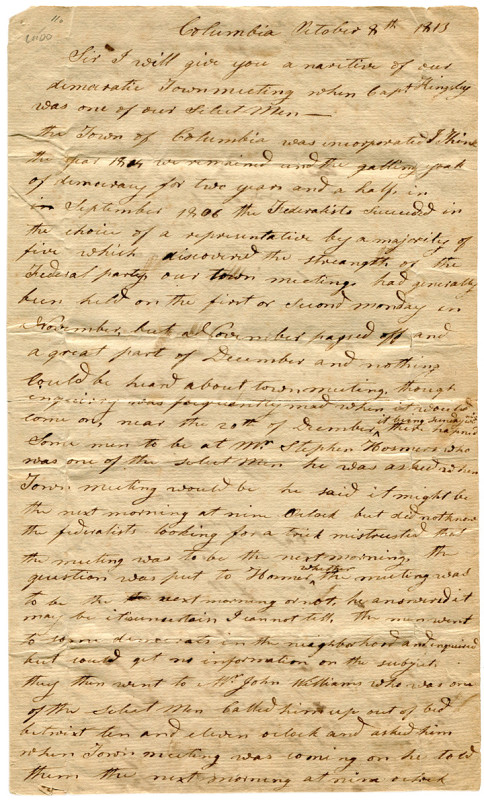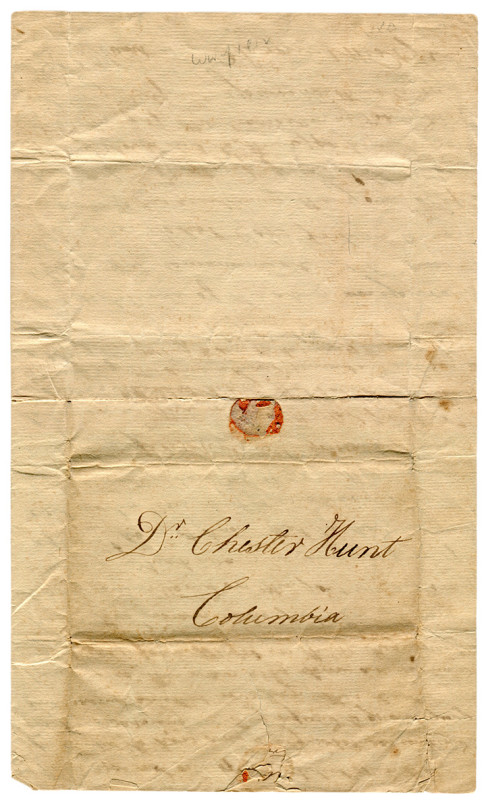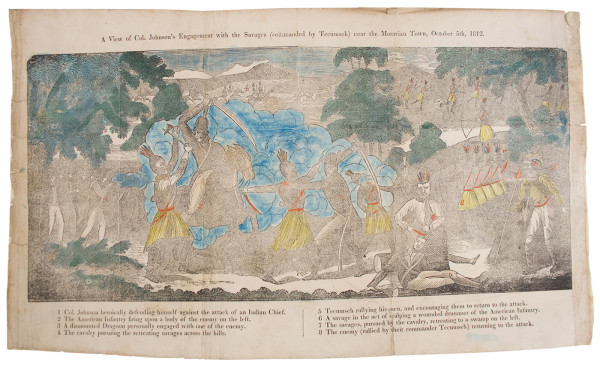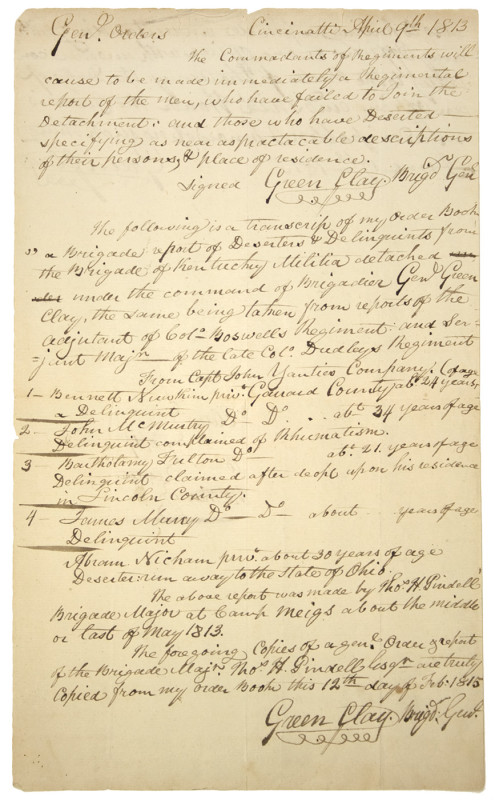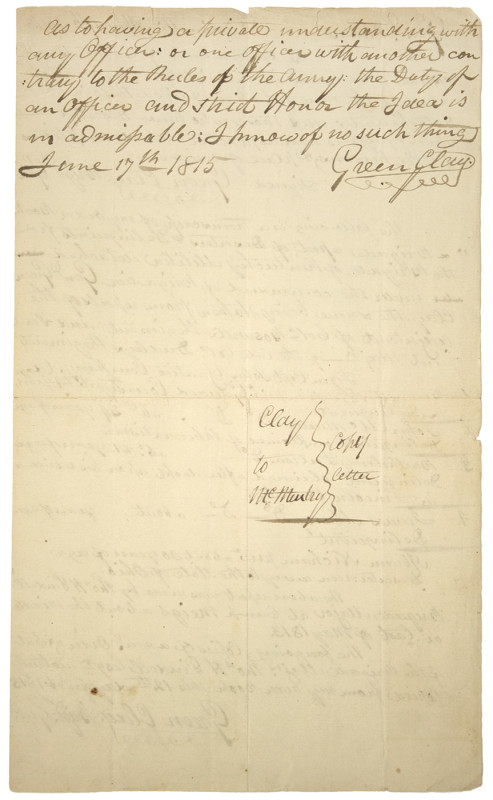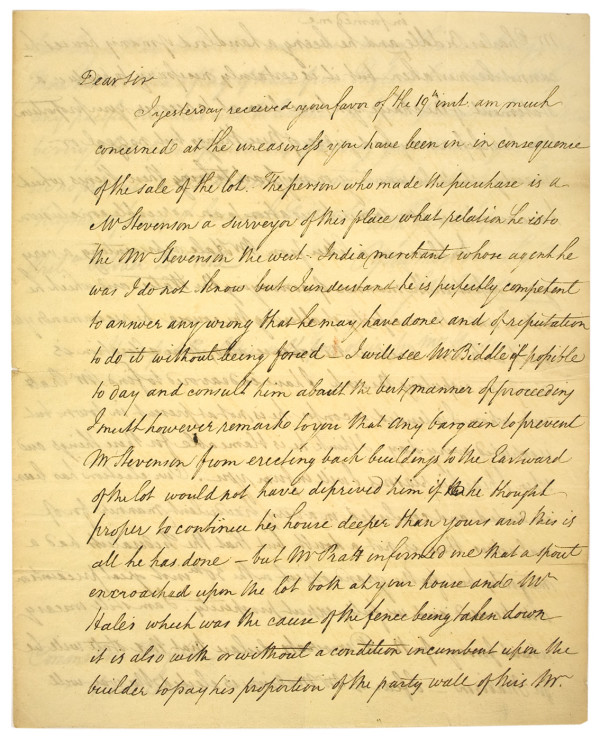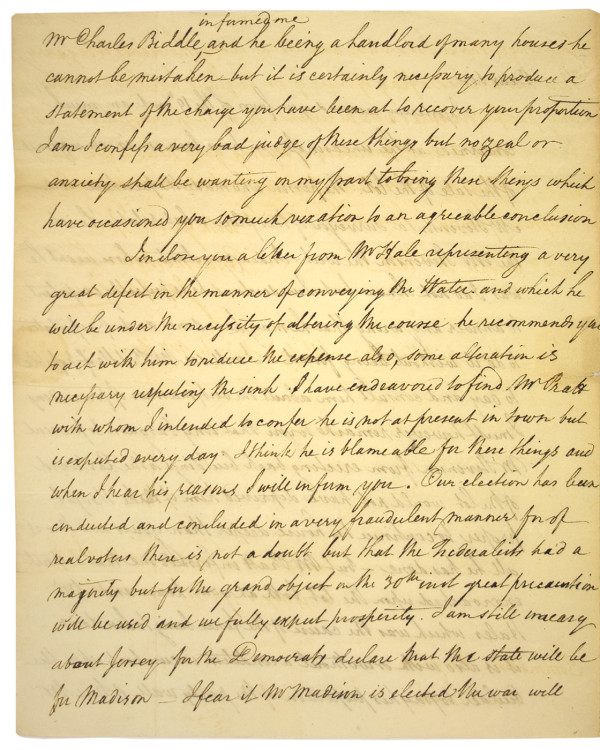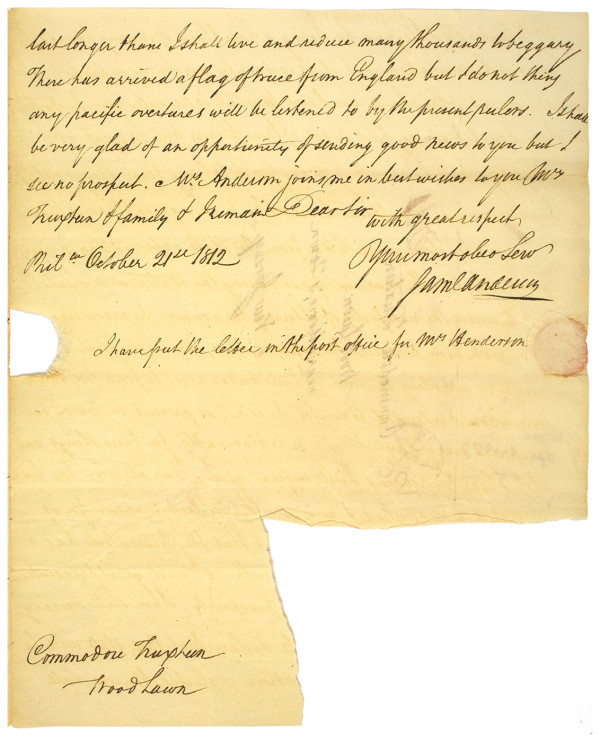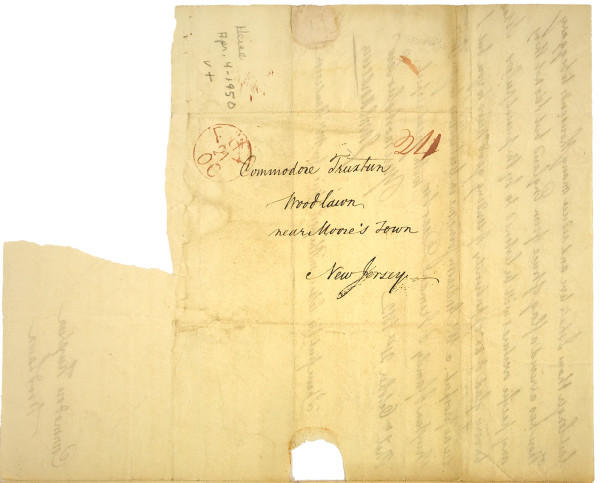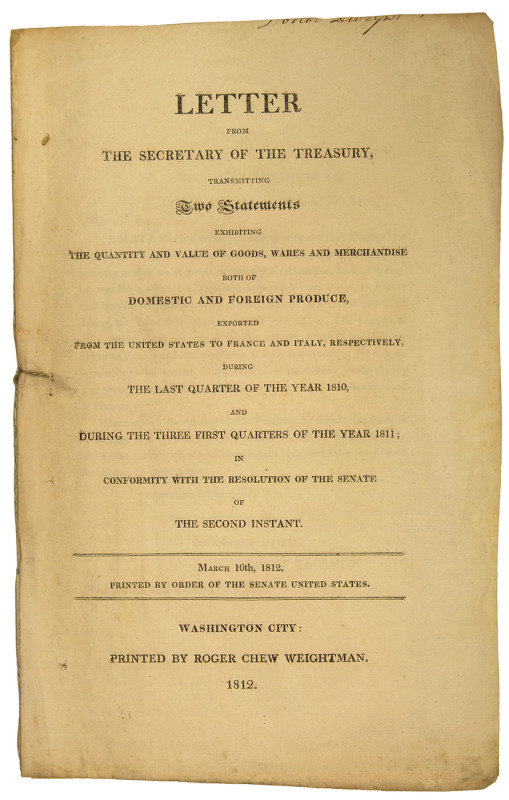Madison’s secretary of war on the court martial of William Hull for the surrender of Detroit
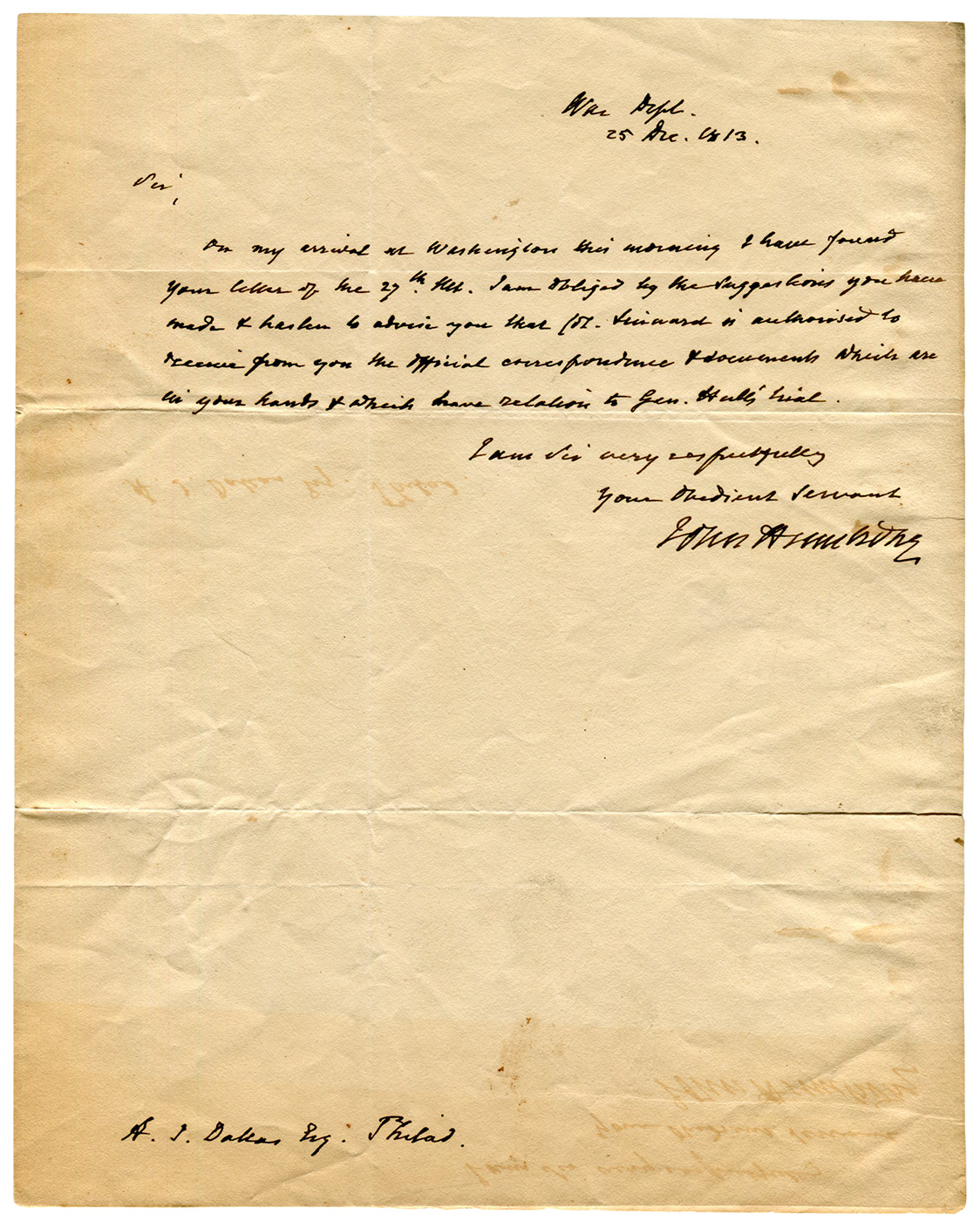 (War of 1812) John ARMSTRONG (1748-1843) War of 1812 date Autograph Letter Signed, “John Armstrong” as Secretary of War, 1 page on a 244 x 198 mm. (9 3/4 x 7 3/4 in.) bifolium, “War Dept.” [Washington], 25 December 1813, to Alexander James Dallas in Philadelphia.
(War of 1812) John ARMSTRONG (1748-1843) War of 1812 date Autograph Letter Signed, “John Armstrong” as Secretary of War, 1 page on a 244 x 198 mm. (9 3/4 x 7 3/4 in.) bifolium, “War Dept.” [Washington], 25 December 1813, to Alexander James Dallas in Philadelphia.
“On my arrival in Washington this morning I have found your letter of the 27th utl. I am obliged by the suggestions you have made & hasten to advise you that Col. Linard[?] is authorized to receive from you the official correspondence & documents which are in your hands & which have relation to Gen. Hull’s trial.”
Hull was serving as governor of the Michigan Territory when James Madison appointed him a brigadier general commanding American forces in the Northwest. The 60 year old Revolutionary War veteran (and friend of Nathan Hale) reluctantly accepted the offer and proceeded to Cincinnati and Dayton to organzine forces to march to Detroit. After making an abortive attempt to invade Canada, a seemingly larger British force approached Detroit, compelling Hull to abandon the position. It was later discovered that Hull had been, through a series of clever ruses, tricked into believing he was dangerously outnumbered.
Special Judge Advocate Martin Van Buren prosecuted Hull at his Albany, New York court-martial, over which General Henry Dearborn Presided in January 1814. The court found Hull guilty of a several charges including neglect of duty, cowardice, and unofficerlike conduct, and he was sentenced to be “shot to death.” His sentence was tempered by an appeal to President Madison to show clemency considering his services during the Revolutionary War, and his advanced age. Madison concurred, remitting the sentence. Hull spent his final years in retirement at his home in Massachusetts.*
Light dampstains and toning, mild ink transfer, expected mailing folds, some separations and minor losses on blank integral leaf, else very good.
(EXA 5905) $1,200
________________
* Report of the Trial of Brig. General William Hull (New-York: Eastburn Kirk and Co., 1814) 2:118.
